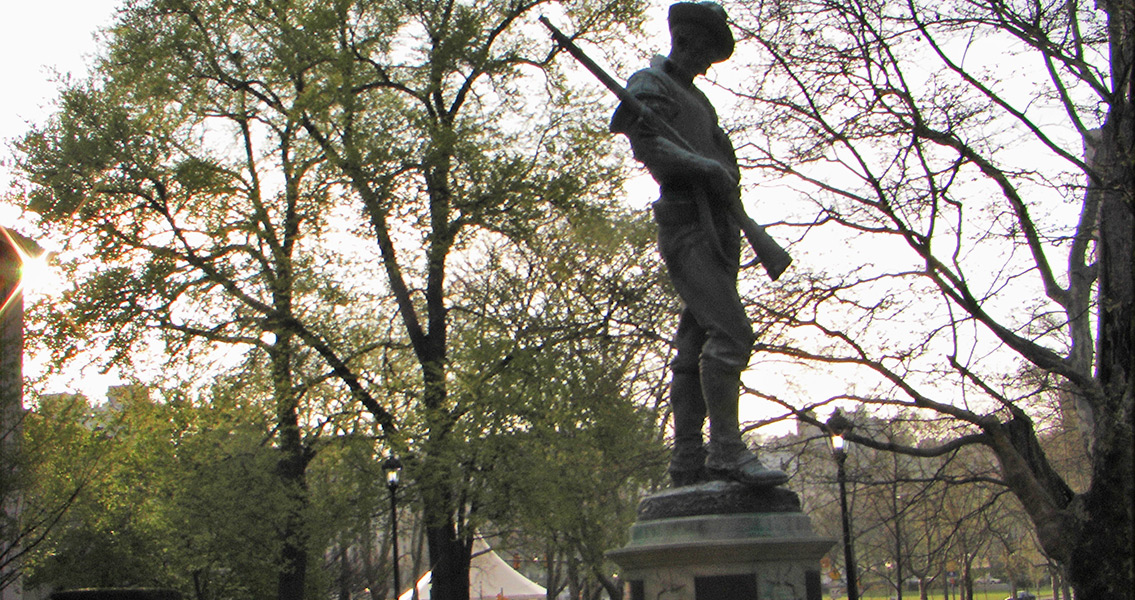<![CDATA[On February 6th 1899 the Treaty of Paris was confirmed in the US Senate, officially bringing the Spanish-American War to an end. In reality fighting in the conflict had finished months before, and both parties had signed the treaty in Paris in December which set out the terms of the peace. The Senate's agreement seemed to highlight the new role America had taken as a major force on the international stage. It is rarely mentioned in history books, but the Spanish American War played a vital role in American and World history. Despite only lasting a few months, the war can be seen as a vital turning point in many ways. It was a significant marker of the USA's transition from passive isolationism to active engagement in international events. It highlighted the continuing decline of the old European colonies, and the rise of a new power which could replace their influence. Domestically, the war revealed the growing power of America's media barons and the enormous influence the likes of Joseph Pulitzer and William Hearst could wield. The origins of the war itself came in 1894. The passing of the Gorman-Wilson Tariff placed restrictions on the import of sugar to the United States, devastating the economy of Cuba, a Spanish colony and major sugar exporter to the USA. Responding to the disruption of the tariff, a group of Cuban nationalists launched a rebellion in an attempt to overthrow the colony's Spanish rulers. Spain responded to the uprising with brutal force, sending in General "Butcher" Weyler to take control of the situation. Weyler put huge swathes of the Cuban population in concentration camps in an attempt to restore order. The United States became increasingly concerned with the Cuban situation, due to the island's close proximity and the abundance of American businesses that had investments there. The USS Maine was dispatched to monitor events and rescue US citizens if the situation escalated. On 15th February 1898 the Maine was blown up and sunk, with the official explanation being it had struck a Spanish mine. By April both countries had declared war. The fighting was short lived, and although neither side was particularly prepared for the conflict - American troops arrived in Cuba wearing uniforms made from thick wool inappropriate for the tropical climate - an American victory was never really in doubt. As well as fighting in Cuba, the United States Navy attacked other Spanish colonies, capturing the Philippines, Guam and Puerto Rico. The war was hugely significant, although the United States had declared at the start of the conflict that it would liberate, not colonise Cuba, it invaded several other Spanish colonies, a fact that was confirmed in the Treaty of Paris. The war was also used as justification for the United States to annex Hawaii, an event which remains a source of controversy to this day. In the United States itself the war revealed the huge influence of the 'yellow press,' a comparatively new group of newspapers which were comparable in editorial content and approach to modern day tabloids. The press published sensationalised stories of Spanish actions in Cuba, creating a frenzy of anti-Spanish sentiment in the United States. It cannot be denied that in some ways the owners of these papers had an interest in the US declaring war on Spain, as war would inevitably sell more newspapers. Itself a former colony, the United States had traditionally held a stance of anti-imperialism. To many critics however, its significant territorial gains after the Treaty of Paris demonstrated that the United States had simply replaced Spain as the dominant power in the Pacific and Caribbean. The Spanish-American War hinted at the hugely significant role the United States would take in world affairs. The outward looking US foreign policy displayed in the likes of the the two World Wars, Korea and Vietnam had its origins in 1898 and 1899. ]]>
The Spanish American War Ends
